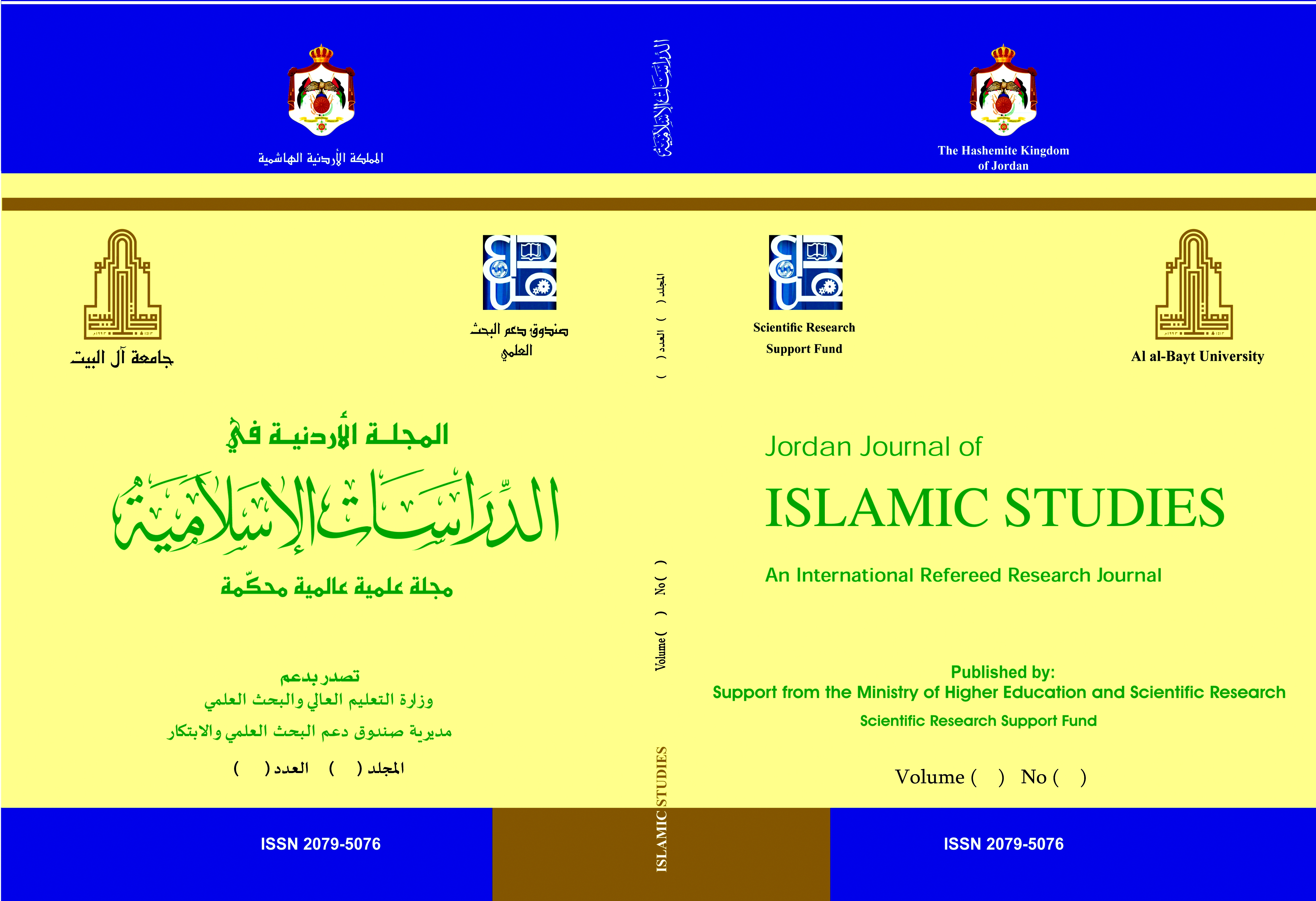Jordan Journal of Islamic Studies

Abstract
The aim of this study is to see the impact of Al-Istihsan on the case of Waqf issues, in which there is disagreement among scholars, both ancient and modern.
Al-Istahsan is a kind of cutting the issues from itself of similar issues for a specific evidence that gives a reason to ignore the first decision to the second one. Al-Istihsan in that meaning is not fit to be the subject of dispute. The conflict between scientists in launching what the mind likes in that. It has controls and regulations which means that it is not for anyone to use who is not able to take certain controls. Ijtihad for example, cannot put it down without a good reason of Sharia Purposes.Al-Istihsan has rules and cannot change it unless the scholars have specific level in Shariah for example Ijtihad and following the Purposes of Shariah.
The study found out that the effect of the evidence of Al-Istihsan on the contemporary Waqf issues, and its is based on the issues of the waqf in two forms: The desirability of the hidden measure in the interview of the clear measurement, and the Approval of The interest and the need.
Al-istihsan in the hidden measurement on the obvious measurement, and Al-Istihsan in the benefit and needs. The Temporary Waqaf is Forbidden by many Fuqaha 'for the purpose of perpetuating it, and it is closer to the sale, that is not allowed to be on time limit. But the gauging which they called it the hidden one, that the stay is intended for the benefit of the arrested and they get the benefit from it, so the stay closer to the lease and which is the origin of the timing.
Recommended Citation
Al-Azmi, Muhammad Kulaib
(2018)
"تطبيقات الاستحسان في بعض مسائل الوقف المعاصرة Applications of Istehsan (Preference) in some of the Issues of Contemporary Endowment(Waqf),"
Jordan Journal of Islamic Studies: Vol. 14:
Iss.
2, Article 19.
Available at:
https://digitalcommons.aaru.edu.jo/jois/vol14/iss2/19

